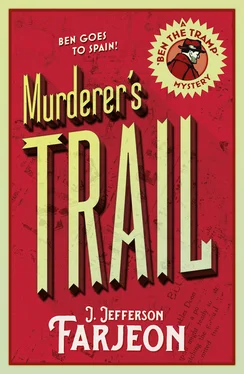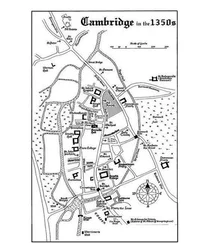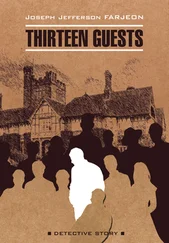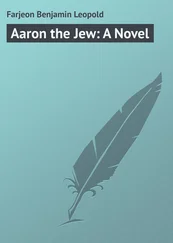In the Captain’s Cabin
The stomach of a ship, as has been indicated, is not the pleasantest place to reside in. The brain is more appealing. There are instruments in it which may fill a novice with a certain awe. There are wheels and levers, intricate barometers, compasses with bulbs and lights, and other electrical devices, all bearing the mute message, ‘Do not touch!’ But sunlight plays about them, and clear air bathes them, driving away one’s nightmare thoughts; and in the adjacent sanctuary where the brain rests, luxury mixes very pleasantly with necessity.
While Ben was ascending from the stomach, two men sat in the brain’s sanctuary. One was dressed in immaculate dark blue. His sleeve bore four imposing gold lines, the middle two interwoven to form a diamond. (The third officer’s sleeve had only one line, and his diamond was just tacked on.) His face was as immaculate as his cloth, but the immaculateness of both the face and the cloth spoke of efficiency, not of dandyism. The chief engineer can give orders with grease on his clothes and smuts on his face, but the captain’s appearance, saving in emergency, must be irreproachable.
The other man possessed quite another kind of distinctiveness. His clothes too, were of the best, if money stands for quality. Brown tweed, of expensive roughness. A coloured shirt that glowed in daring contrast to the suit. ‘I am right!’ it shouted to the doubter. ‘Notice my silk. Men who can afford me can make fashion!’ Brown boots, solid and highly polished. A tie that cost even more than it could show—it is a tragedy that mere appearance is so limited—and a pin to bring tears to covetous eyes. The pin was secretly secured against the covetous eyes, however, by an eighteen-carat gold clip.
And presiding above all this was a large monarch of a head, full of ancient business furrows that were now comfortable creases. A grey moustache, also large and comfortable, concealed the upper lip. But today something disturbed the usual ostentatious comfort of this man, and his eyes as they gazed at the captain sitting opposite were bright with restlessness.
‘Say, I’ve heard of your silent navy,’ said the large man, breaking a pause that was getting on his nerves; ‘but I didn’t know it spread to the Mercantile Marine!’
The captain, quite unperturbed by the little sarcasm, allowed a few more seconds to pass. Then he replied, unnecessarily informative:
‘I’m thinking, Mr Holbrooke.’
‘Well,’ growled Mr Holbrooke, ‘I should say even thought’s got a time limit.’
‘In your country, perhaps,’ said the captain. ‘Not in ours. I’m thinking of what you’ve told me just now—and wondering—’
‘Yep?’
‘If you’ve told me everything?’
Mr Holbrooke frowned, looked away for a moment, and then hastily looked back.
‘I don’t get you!’ he exclaimed.
‘It ought to be easy,’ observed the captain. ‘What’s really making you so scared?’
Mr Holbrooke did not like that, and his large eyebrows went up in protest.
‘Say, who’s scared?’ he demanded.
‘Well, suspicious, then,’ the captain corrected himself dryly. ‘Choose your own term, Mr Holbrooke.’
Mr Holbrooke regarded the cigar he was smoking thoughtfully. It was one of the captain’s cigars, and, to his surprise, it was quite as good as his own.
‘Ah—I see what you mean,’ he murmured. ‘Yes, I’m suspicious, don’t worry. Suppose I say it’s just a hunch?’
‘A hunch,’ repeated the captain, nodding slightly. ‘And do you seriously expect me to search the whole of this ship for you on account of a hunch?’
‘Eh?’
‘And to watch every passenger? And to ring a Curfew at eight? And to send a wireless to Scotland Yard? Because that’s really about what it comes to, Mr Holbrooke, isn’t it?’
Mr Holbrooke’s frown grew.
‘Maybe that’s putting it rather strongly, sir,’ he protested. ‘I’m not aware that I’ve said anything about any Curfew!’
The captain shrugged his shoulders.
‘Then what do you want me to do?’ he inquired.
Mr Holbrooke stared at the ground, and then suddenly banged his fist down on the arm of his chair.
‘No, by Gosh, you’re right!’ he exclaimed. ‘That’s what I do want you to do! Within reasonable limits, of course—and I dare say we can spare the Curfew! The point is, as I’ve mentioned, that you’re not dealing with—well, sir, just an ordinary person. You understand me? What I’m telling you is that I’m able and willing to pay for what I’m asking—’
He paused, as the captain raised his hand. The captain spoke a little stiffly.
‘The normal protection of passengers on board the Atalanta is included in the price of their passage,’ he said. ‘And, even if it were not, the expense of the extra service you suggest would be rather high for—well, just a hunch.’
‘Wouldn’t that be my affair?’ suggested Mr Holbrooke, unhappily.
‘In the strictest sense,’ responded the captain, ‘everything on board the Atalanta is my affair.’
‘Then, by golly, make it your affair!’ cried Mr Holbrooke, exasperated. ‘You call it a hunch! It’s a darn sight more than that—’
‘Ah!’
‘Yes, sir! It’s—’ He broke off, and stared at the captain speculatively. ‘Say, do you never have enemies in your country?’
‘What sort of enemies?’
‘Well—I don’t mean wives.’ He smiled rather foolishly at the cumbrous jest. ‘No, you can deal with wives. Flowers—a theatre—that’s easy! I’m talking of—’ The smile faded. ‘This kind—people who are jealous of you—jealous of your success and your position—jealous of the money you’ve made and the brains and industry you’ve made it by—people who hate you like poison, and will do any sort of God-darn trick to bring you down a bit to their level!’
His eyes narrowed. For a moment, he almost seemed to forget that he was in the captain’s cabin, and the captain regarded him with increased interest. He had been on the point of ending the interview. It was not to his taste. But now he decided to continue it.
‘I see,’ he commented quietly. ‘So you’ve got enemies of that kind?’
‘There’s not a successful man in the United States who hasn’t!’
The statement was delivered in the form of a retort. The captain interpreted it as an attempt to modify the significance which, a moment earlier, had been insisted on, and he was unable to suppress an ironical smile at the awkward manœuvring of his wealthiest passenger. It was child-like in its inconsistency. When a clever millionaire became child-like, there must be some solid reason behind it. Was the reason, in this case, stark terror?
‘I’m quite ready to help you if it’s necessary, Mr Holbrooke,’ said the captain; ‘but you haven’t made out your case yet. If your enemies are the sort that every successful American possesses, then every successful American would require the captain of every ship he travelled on to give him special protection. Captains would have a busy time. It seems to me that these enemies of yours must be more malicious than the average. Otherwise, you’d hardly waste my time over them.’
‘Well—we’ll say they are?’
‘Then may we also say, perhaps, that they have more reason to be?’
‘Eh?’
‘I merely put the question.’
‘Well, suppose you explain the question?’ grunted Mr Holbrooke, with an exclamation of annoyance.
He did not relish the question. His face grew rather red. The captain’s own face became a trifle sterner.
‘Please try and be calm, Mr Holbrooke,’ he said. ‘I really can’t assist you otherwise. What I’ve got to find out is how real this danger you talk of is—’
Читать дальше











